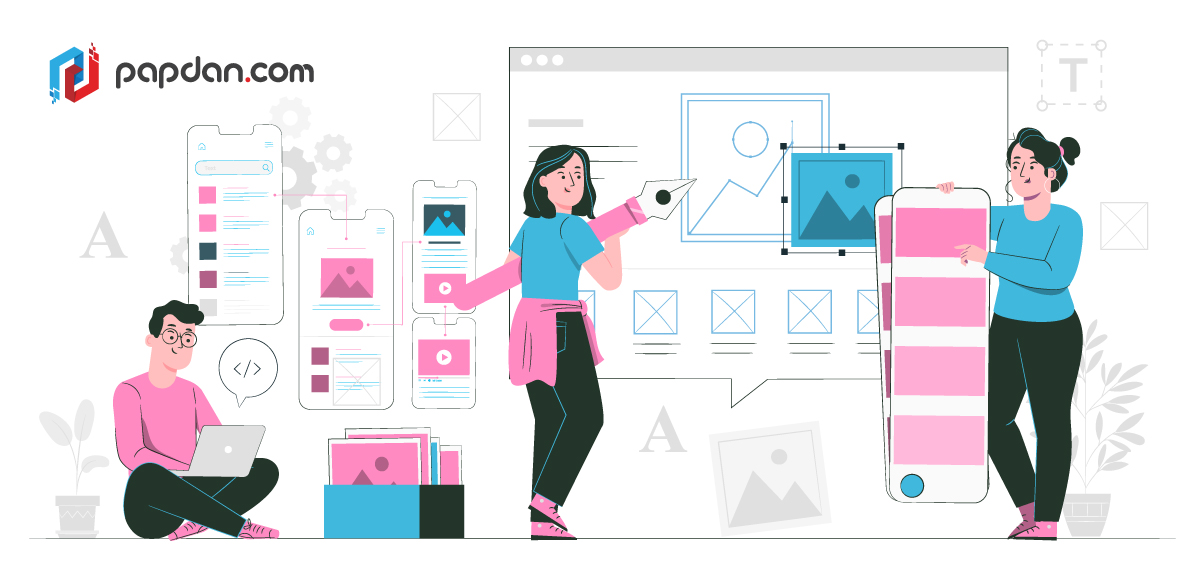To be a successful Melbourne web designer, you must have a combination of technical skills as well as soft skills, as this is a career that demands strong communication and collaboration skills.
A web designer must be familiar with web design theory and industry best practices, as well as search engine optimization (SEO) strategies and how to collaborate with customers and stakeholders to ensure that their goals are met.
Because there are some underlying concepts for developing outstanding websites, such as color theory, organization, and user experience, learning web design theory is essential. If you don’t want to go to college, you may still learn about this idea by enrolling in a coding bootcamp or taking an online course.
SEO is becoming a more in-demand expertise. As the site’s visual architect, you’ll be in charge of making sure it has all it needs to rank well in search.
Another skill required for success as a web designer is client and stakeholder management. Web designers rarely have complete creative control over their work, and they must collaborate to guarantee that a new design is accepted.
In addition, most web designers require at least a basic understanding of computer languages such as HTML, CSS, JavaScript, and jQuery. This is especially vital for freelancers, but Web Designers who work for larger organizations or agencies are more likely to be part of a team that includes programmers and graphic designers.
Here are the top 10 skills you must have as a successful web designer.
Designing Fundamentals
The first skill you should master as a web designer is how to use basic design software. You must be aware of the many platforms on which you might construct a profitable website. You must, however, make sure that you’re using the right instruments at the right moments. Photoshop, for example, is an excellent picture editor, but Adobe Illustrator is better for graphic design. Such knowledge might assist you in gaining a better comprehension of the overall artistic canvas.
User Interface and User Experience
The field of user interface and user experience (UI/UX) is quite diversified. It’s also one of the most sought-after abilities in today’s web designers. The way we interact with technology is always changing, and both UI and UX designers will play a part in determining our future.
These two factors are critical to every company’s success. You want something to look at and something to eat when you go to a restaurant. The primary aspects that allow firms to sell their products and prosper are the user interface and user experience.
If you’re curious about how technology works, how users interact with it, and how to shape how it affects our lives, UI/UX design might be the right fit for you.
Responsive design
Responsive web design is a method of building websites that adapt their layouts to appear nice on a variety of devices. Desktop computers, tablets, and mobile phones are the most common devices for viewing your website. Because Google now penalizes websites that are not mobile-friendly, or responsive, learning how to develop strong responsive webpages is essential.
Most people associate responsive web design with creating websites that look fantastic on any device. True, but there’s a lot more to it. It’s not only about the device when it comes to responsive web design. It’s equally important to consider the context. To build a great responsive design, consider what is most important to your users and how you might improve their experience.
CSS & HTML
A solid mastery of HTML and CSS is one of the greatest web design skills you can have. The building components of a website’s style and structure are HTML and CSS. You may read and change a page as many times as you like with them. If you study these important languages, you will have no trouble finding a good web design job.
Learning additional computer languages, in addition to HTML and CSS, will vastly improve your web design implementation methods. It would be wonderful if you could learn JavaScript, Python, Swift, and C++, but if you must choose only one, choose JavaScript. Knowing these languages will immediately place you in a class of your own.
Search Engine Optimization (SEO)
A crucial website design tip to remember is that no website design can achieve smooth outcomes without the power of SEO. As a web designer, you’ll need to focus on increasing the website’s speed, style, structure, and performance while keeping SEO in mind. In order to accomplish so, it will be beneficial to learn the principles of SEO and search engine operations.
Client management
You’ll have to collaborate with customers or stakeholders to design websites that are beautiful and useful, whether you’re an employee or a freelancer. You must know how to convey your ideas to those who may not have a technical background, as well as how to manage expectations while yet delivering solutions that exceed their expectations. If you work as a freelance designer, you need have a plan in place to ensure that your income flow and job backlog are both healthy and reasonable.
Communication
Communication skills are an attribute that any professional – in any industry – should seek to improve, but they are particularly crucial for Web Designers. You must be able to successfully communicate your ideas in plain English so that you and your clients or stakeholders can debate, collaborate, and stay on track.
Similarly, because you’ll almost certainly be collaborating with other teams, you’ll need to be ready to deliver regular project updates.

